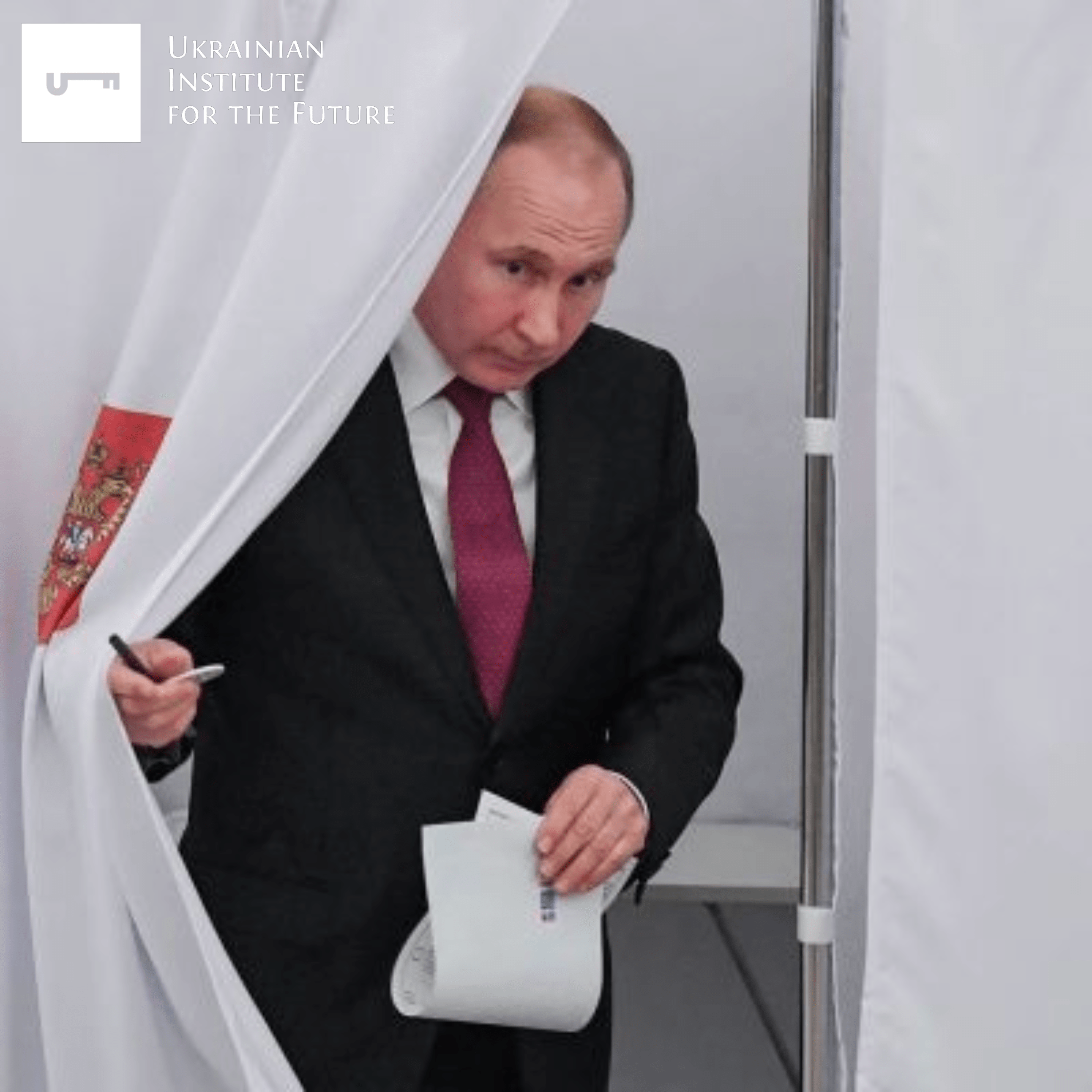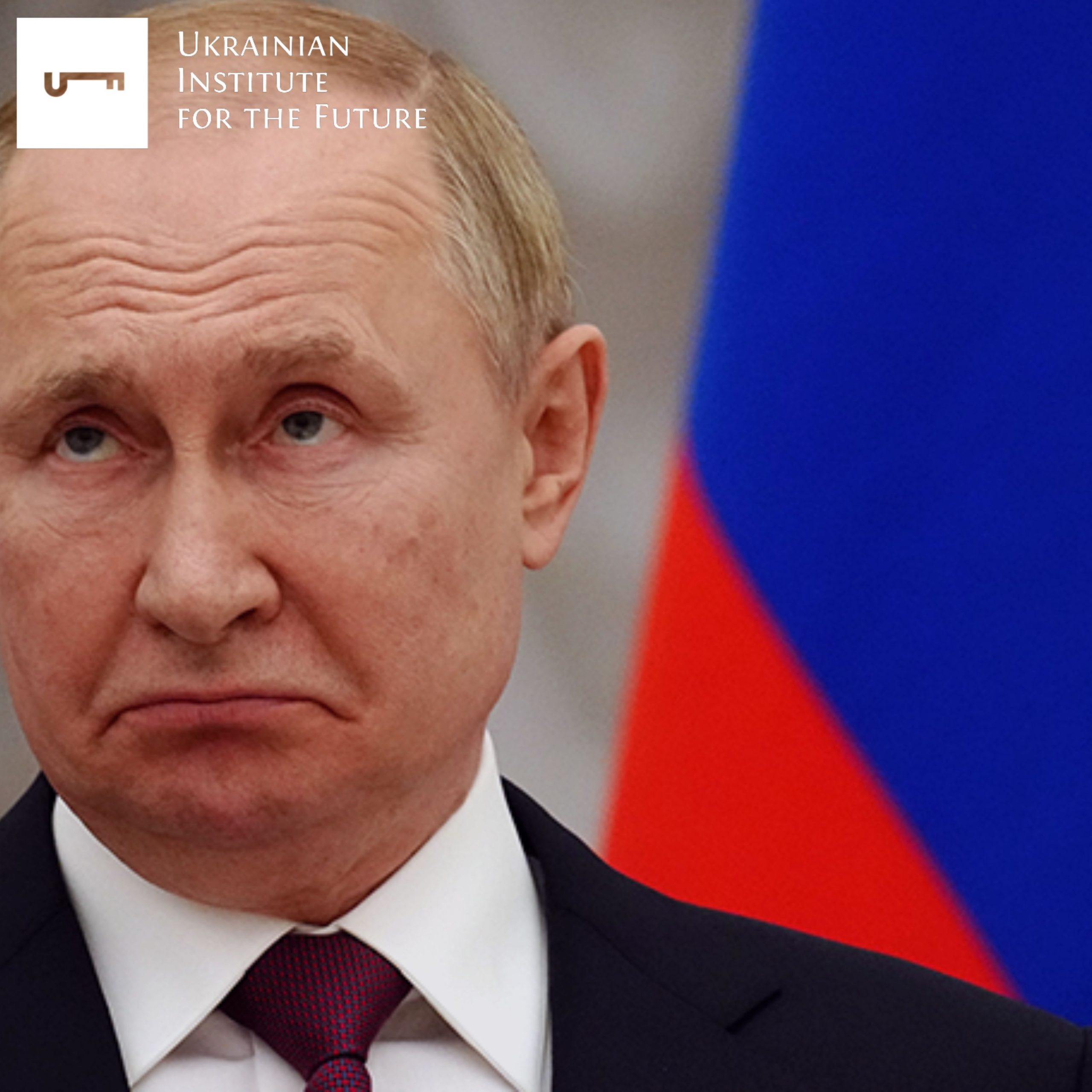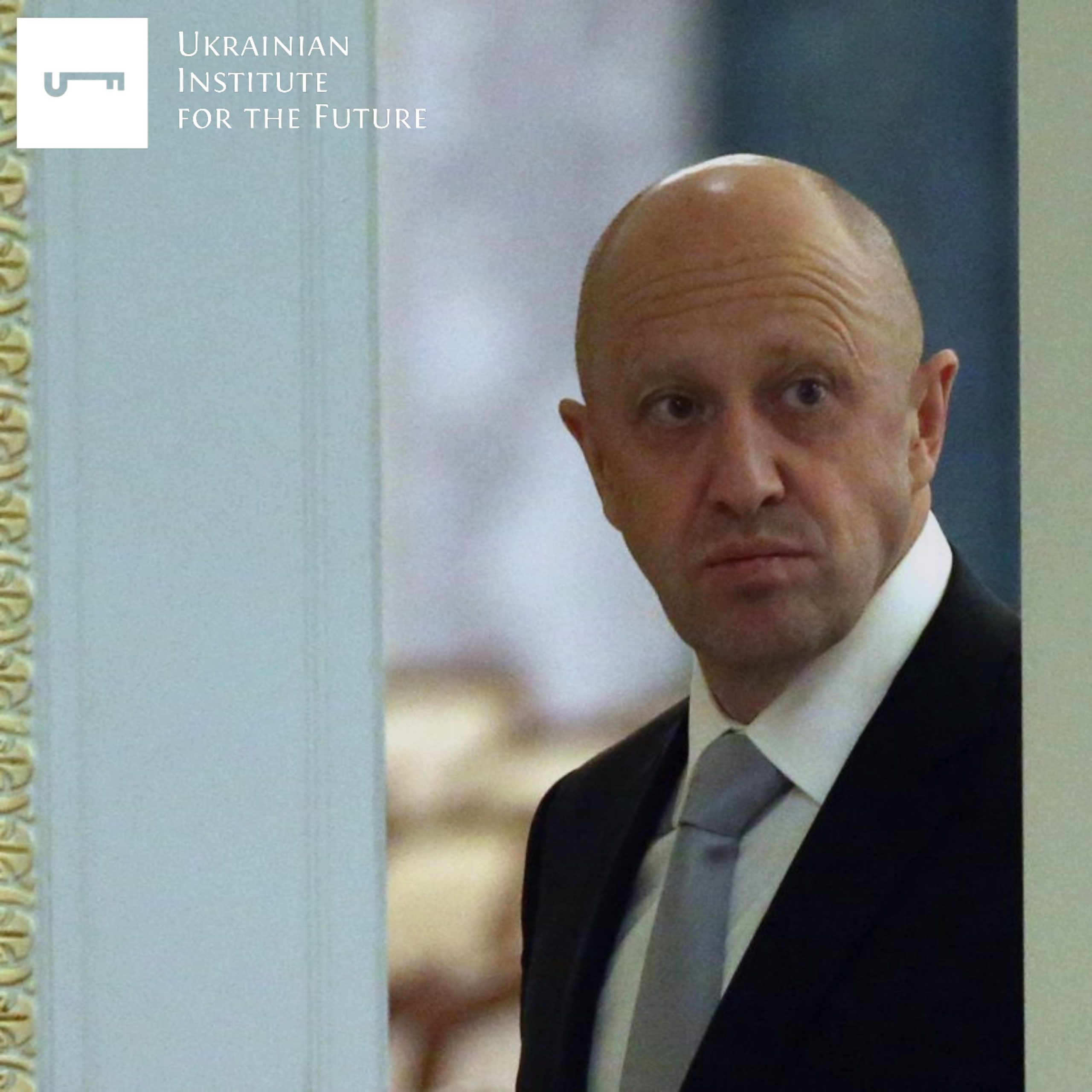The internal enemy is not a myth. FSB is not capable of dealing with terrorism. It will play along with the “terrorists” in order to keep the population in fear and force them to “unite around Putin”.
In Russia, the preparations for the presidential elections have begun. Putin wants to set a new record and get ¾ of the votes. According to media reports, the government has marked a “bar”: turnout – 70%, votes for Putin – 75%. In 2018, 76.69% voted for Putin with a turnout of 67.54%.
The targets have been brought to the attention of the vice governors for domestic policy. Achieving the targets will allow Putin to get more votes than in 2018 – by increasing the number of voters (“new territories”) and increasing turnout.
The records will be set with the help of three methods:
1) Falsifications
At “referendums” in the occupied regions of Ukraine, a mechanism was tested to announce the results without actually holding a vote. It will also be partially used in the presidential elections. However, the possibility of implementing such a scenario is far from taking part in all regions of the Russian Federation. Therefore, in September elections in Moscow and other regions, another instrument of falsification will be worked out – the active use of remote electronic voting.
In addition, in 2024 the government plans to work with voters using “the old-fashioned way”: just “pull” to the polling stations and control the process of expression of will.
2) Deception
Growing military spending deprives the authorities of the opportunity to widely use the mechanisms of social bribery. Therefore, a different approach was chosen: to make promises not to worsen the social situation.
The most revealing story happens with the increase in utility tariffs. In 2022, two stages of increasing took place: in July and December. The average price of a bill increased by 13.5% for Russians. Having received the “payments”, the Russians were expectedly indignant and even tried to protest: they resented online, scolded the authorities, and signed petitions. In some places, there were even rallies against the tariff genocide.
After that, Putin personally promised: no changes in utility bills are expected in the next year and a half.
Thus, the authorities and Putin personally adopted the experience of previous elections, when on the eve of the campaign the topic of raising the retirement age was outlined, promises were made not to raise it immediately before the campaign, and after the elections, a decision was made to raise it.
The same will happen in the case of tariffs: there will be no increases before the elections (they were held previously, in December 2022), and after that the population will pay in full and even more: Putin needs money to continue the war.
3) Terror
If the government does not have the ability to bribe voters, it will intimidate them.
“Terrorism comes again to our streets, to our cities”, Medvedev wrote, reacting to the murder of “military officer” Fomin-Tatarsky. The former president who frightened the world with nuclear madness and the current alcoholic “turbopatriotic” and deputy chairman of the National Security and Defence Council switched to intimidating Russians with the threat of terrorism.
It is not only Medvedev who speaks about the fact that terror in Russia is the “new norm”: “Both the murder of Dasha Dugina, and the Bryansk outing, and the terrorist attack against Vladlen are all precisely attentats’ aimed at clearly stake out the following topic on the agenda: in Russia, there is a radical anti-Putin underground, and it will wage an armed struggle against the regime”.
The only question is who is behind the new wave of terrorism: Ukraine (as propaganda claims), or Russian intelligence services (similar to explosions and other terrorist attacks at the turn of the millennium). Most likely, there is some truth in both statements.
But anyway:
A) FSB either does not cope with the threat or is its shadow moderator.
B) The authorities are using the situation to encourage Russians to “unite around Putin”. Peskov stated this bluntly: “Now is the time for us all to unite and be together. And unite, of course, around our president”.




